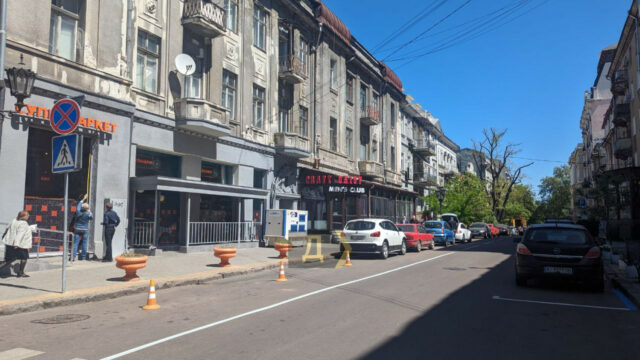Changes Implemented in Parking Regulations on Tchaikovsky Lane
Recent modifications to the parking scheme on Tchaikovsky Lane, located near the Odessa Opera House, have sparked a mix of reactions among local residents and businesses. The updates include a parking ban on the even-numbered side of the street, which is closer to Primorsky Boulevard, and the introduction of paid parking on the odd-numbered side.
New Restrictions on Parking
According to local reports, parking is now prohibited on the even side, while the odd-numbered side, which faces the Opera House, has implemented a paid parking system. The fee is set at 20 hryvnias per hour during working hours. These changes are aimed at improving traffic flow and enhancing the overall urban environment, but they have also resulted in conflicts between municipal workers and representatives from the Opera House, hotels, and other establishments in the area.
Installation of New Traffic Signs
New traffic signs are presently being installed to clearly indicate the new regulations. This task has not been without its challenges, as it has led to disagreements between various stakeholders who are concerned about the impact on accessibility for both visitors and local businesses.
Grace Period for Enforcement
In a statement to local media, the head of the transportation department, Volodymyr Khitrenko, expressed hopes for public understanding regarding the changes. He confirmed that there would be a grace period during which no fines would be issued. «In the initial days after the new signage is up, inspectors will not be issuing penalties. They will begin monitoring compliance with the new regulations only after the ‘No Parking’ signs are installed and the new scheme is fully implemented,» he stated.
Free Parking After Hours
For those concerned about fees, parking on the odd-numbered side will continue to be free outside of working hours. Additionally, a monthly pass is available for 2000 hryvnias, providing residents and frequent visitors with a convenient and cost-effective option for parking in the area.
As the community adapts to these new regulations, local authorities encourage feedback and collaboration to ensure a smooth transition that benefits both residents and visitors alike.





